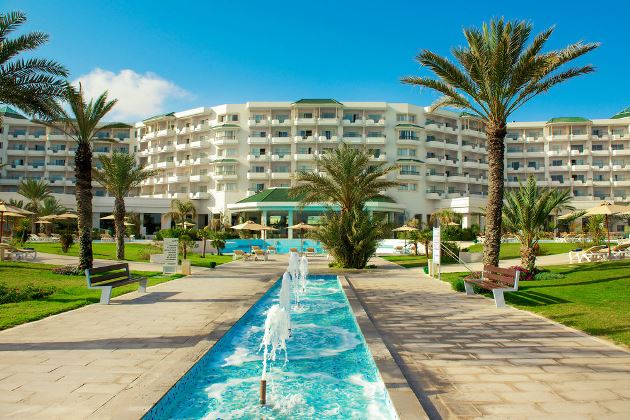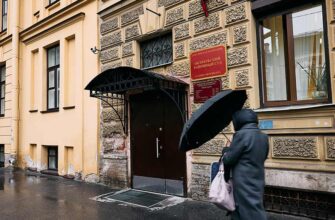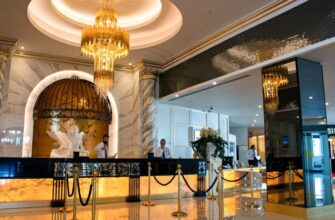On August, 26 2016 a session of Presidium of State Council of Russia “On measures to increase the investment attractiveness of the sanatorium-resort complex in the Russian Federation” took place in the Altai region. The meeting discussed key issues of developing domestic tourism, the speakers put forward the proposals aimed at improving the situation in the industry.
An issue of introduction of a regional resort fee stays one of the important proposals in this field. The proposal provides for that the tourists traveling in Russia will be obliged to pay a tourist fee.
It is assumed that the size of such fee will be small (about 100 rubles). It will be included in the cost of the tourist tours, and these funds will be spent on infrastructure development in the region. Some projects already provide funding on that basis. In particular, the governor of the Altai territory told the meeting: “Last year, the government adopted a decision on creation of a natural park of regional importance around Belokurikha, including on the territory of two adjacent rural areas, with a total area of about 40 thousand hectares. The park will play the role of environmental safety zone of our resort. The source of funding of such activities may also be created through the introduction of the resort fee mechanism at the first phase in pilot areas”.
The Minister of economic development of Russia Alexei Ulyukayev noted on this initiave: “I would be very careful about the resort fee. On average, one visitor pays 9’000 rubles per day here in “Belokurikha”, about half of the sum is paid for accommodation and so on, and the rest is paid for the services. It has been said here, 100 rubles is a small figure. But is it true? Roughly speaking, if the client pays 100 rubles additionally, in sum it will be 9100 rubles. On the other side, it may remain the same 9000 rubles, but the tourist does not buy one of the services. And the tourist may perceive it in this way. It would be better to sell him an additional service, and he can pay even a thousand more. But if he will be obliged to pay 100 rubles, he will think that it is not quite good treatment of him”.
The President of the National resort Association, Alexander Razumov proposed to classify the activities connected with health resort treatment as a medical activity. In his opinion, “equating sanatorium-resort activities to medicine will give the opportunity of not changing the profit tax, as the medical organizations have absolutely other preferences. Because it turns out, that the spa resort is a medical organization, but, in fact, their activities do not apply to medical activities.”
The Minister of culture Vladimir Medinsky proposed to subsidize the Russian tour operators from the federal budget, in order to stimulate incoming and domestic tourism. According to the Minister, “this way of attracting tourists is widespread abroad: Turkey, Thailand, Cyprus, Egypt, use it nowadays. They directly stimulate the foreign travel agencies and pay for every tourist. Therefore, we also raised this issue in January, to temporarily introduce a similar system in our country. The plan is to fund additionally travel agencies to stimulate incoming and domestic tourism. Of course such funding will include a lot of conditions, as no one is going to subsidize Sochi in August. Such funding can only be divided by half between the region and the federal authorities, if the region is interested in it. The funds should be only spent on large organized groups, it is always beneficial – package sales, and the new destinations”.
“E Vesti” kindly spoke to tour companies to know their opinion on the proposed initiatives. These persons answered the questions: Sales director of “OneTouch&Travel” Ivan Bublyaev, general director of “Dolphin” travel company Sergey Romashkin.
EV: In Your opinion, how effective is the introduction of the resort fee? This measure, will it lead to realization of the application tasks. And will it be useful for the industry?
Sergey Romashkin: I believe that the introduction of the regional fee will definitely have a negative impact on both the tourist flows and the image of the resorts. It looks like the resorts only need money from the tourists. It’s not a very good in terms of marketing, because it implies that the resorts do not welcome visitors, but they are interested in attracting their money. It seemed to me, that such fee should initially be included in the services costs of a resort.
I mean, part of the money paid by tourists for the services of the resort goes to local or federal budget in the form of tax. And it turns out, that instead of business development, we say to the tourist: do what you want, but don’t forget to pay a hundred rubles. Today, we have people who are able to pay about 5000 rubles for the service. Even if such a fee is necessary to introduce, it should be proportional to the tour cost. If you pay 900 rubles per day, 100 rubles is a serious amount of money in this case.
I also agree with Ulyukaev that there should be a transparent scheme of spending of such funds. It is necessary to show real results. For example, when a building repaired, an information plate can be put up that the building was renovated on the money of the tourist fee. Then people will see that money is not lost, but was used according to the intended purpose.
In general, this topic has been being discussed for five years. There were more and less successful moments for this initiative. I believe that the moment is still very unfortunate now: real earnings of the population and the GDP are falling. A year ago, the authorities wanted to stabilize the tax system, but they discuss a new tax for tourists. A negative image effect prevails over the economy of this innovation.
Ivan Bublyaev: of Course, this measure is effective, if the money thus obtained, will actually be used for its intended purpose, and the result of the investment of these funds will be visible. The idea is not new, as it is used around the world. But I will repeat myself, that the transparency in collecting of such funds and their subsequent investment is important. As for the question of the consequences of the introduction of such fee, it is a matter of calculation and the subsequent steps of making transparent the fee collection and the investment of received funds.
EV: How do you think, do is it necessary to include resorts to medical facilities? If yes/not, why so?
Sergey Romashkin: It’s a good idea to include resorts to medical facilities. Today, the resorts provide the same services as hospitals, but they have more comfortable living conditions. Another thing is that there are some resorts that only have some spa treatments, and it is necessary to tell the difference between A and B.
Ivan Bublyaev: All that concerns human health must be related to medical facilities, obtain all necessary permits, licenses and conform to the norms and standards of modern medicine.
EV: In Your opinion, will the subsidizing of tour operators lead to the development of domestic tourism?
Sergey Romashkin: This question has also long been discussed. I’m afraid, that since the budget money will be involved, the Minister of finance will say the budget does not have money for such tasks. And he will be quite right. Today, many countries stimulate the tourist flow in this way. For instance, to some sums for attracting tourists are well-known. For example, I know that France spends 40 Euros for one tourist. For example, the French decided to attract 100 Germans more to Paris. For this, they allocate 4000 Euros on advertising, video ad in Berlin, etc. Otherwise, the money can be paid to the German travel agencies so that they gathered 100 Germans to visit France.
Ivan Bublyaev: It’s a question that requires careful consideration. Of course, as a motivational tool, cash payments can be used. It is difficult to speak about its effectiveness, because much will depend on the size of the sum. If it is large, then the tour operators and travel agents will agree on that with enthusiasm, but if it is small, it will not be interesting. In any case, if it is agreed to implement the measure, it should be selective and well-calculated investments. Of course, then “OneTouch&Travel” and other partners in the market would further stimulate demand for domestic tourism.
EV: Could you estimate the situation with investments into the industry?
Sergey Romashkin: Russia is a country with unpredictable tax laws and other aspects of business. In addition, the tourism business is not very profitable, oddly enough. The payback periods for hotel projects or resorts are large enough. When investing in such a project, the first profit may be gained after 8-10 years. But miracles do not happen, and investors are looking for some more quick projects. Ten years do not suit anyone, especially in Russia.
However, I do not see that there is no investment in the industry. Maybe, there is no solid investment in tourism. No one invests billions of dollars in the tourism sector in Russia. But, for example, a hundred people can invest by ten million dollars, such investments take place. This process is under way in the Krasnodar region, in the Altai region. There is also a kind of investment work in Moscow. These projects are just not familiar to everybody, as they are not as large as the preparation for the Olympics. For example, now there is a wave, many investors are hurrying to build hotels and other tourist facilities in all the cities that will host the World Football Championship.
Ivan Bublyaev: We are not yet transparent for foreign investors, we are nor high rated there, and, unfortunately, we have a negative image. The Russian investors are accustomed to the “fast” money, but tourism is uninteresting even in the medium term, and most projects pay off only in the long term. This, incidentally, has been understood in the West long ago, and most tourism projects have the government support, both from the federal and regional levels, as this creates more jobs (for a few tens of years), and taxes, and infrastructure development.
According to the materials of the meeting of the State Council and the interviews with tour companies, the following interrelated problems can be market out in the way of development of the Russian resorts:
Lack of state funding. Over a long period of time, various financing initiatives have been put forward in the field of tourism, but today the state has many other priority projects requiring funds, so only major tourism projects get the state support.
Deterioration of the health resort sector. Minister of health, Veronica Skvortsova: “Total number of resort institutions is 1875, while 33% are state and municipal organizations, 67% are private and non-governmental and other medical organizations. 18% of the state resort organizations have depriciation of more than 80%. Reconstruction and modernization require investments of 85-200 million rubles into one project”. Since the state does not have sufficient funds to support the federal targeted investment program, it is necessary to create conditions for transfer of resorts in the property of constituent entities. After the transfer, improving the quality of these objects through the use of concession and privatization will be important (reconstruction, repair, modernization, etc.). This could increase the competitiveness of the Russian resorts.
Low predictability of the investment climate. Despite the introduction of public-private partnership, in which immutable conditions of cooperation are guaranteed to the investor, a volatility remains high in the market. It is also due to the fact that the tourist projects have long payback periods.





